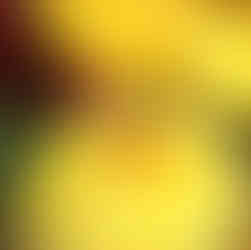The Seven African Powers: A Fascinating Exploration of African Deities and Their Influences
- Priestess Devi Sura
- Nov 5, 2023
- 2 min read
African spirituality is a rich tapestry woven with diverse beliefs, practices, and deities. Among these, the Seven African Powers (also known as the Orishas or Seven Orishas) hold a significant place. These powerful and revered entities are deeply ingrained within various African religious ceremonies and traditions across different regions, showcasing their inherent significance in the cultural fabric of people.

In this blog post, we will embark on an enthralling journey to discover the Seven African Powers, delving into their origins, characteristics, and the cultural significance they hold.
Ellegua or Eshu: The Divine Messenger
Ellegua or Eshu is regarded as the gatekeeper of communication in the Yoruba religion. Often represented as a trickster, Ellegua facilitates communication between humans and deities, acting as a mediator and messenger. In rituals, he is invoked at the beginning of ceremonies to open doors, remove obstacles, and bring luck.
Obatala: The Embodiment of Purity and Creativity
Obatala is celebrated for being the benevolent creator of humanity and possessing the power of purity. Often depicted as an elderly figure, Obatala is associated with wisdom, creativity, and compassion. He is revered as the overseer of justice, peace, and righteousness.
Yemaya: The Nurturer and Protector
Yemaya, the goddess of the ocean and motherhood, embodies the life-giving powers of water. She is characterized by her nurturing and protective nature, symbolizing fertility, healing, and maternal love.

Yemaya is often invoked for guidance, emotional strength, and during fertility rituals.
Oya: The Fierce Warrior
Oya is the goddess of the winds, storms, and patron of the cemetery. Known for her fierce and unpredictable nature, Oya is revered as a warrior goddess who wields the power of transformation and change. She is associated with strong winds, lightning, and tornadoes, symbolizing the force of nature and the power of rebirth.
Shango: The God of Thunder and Justice
Shango, also known as Xango or Jakuta, is the god of thunder and lightning in Yoruba mythology. Symbolizing power, strength, and justice, Shango is often portrayed as a powerful and charismatic king. He is associated with the drum, fire, and dance, and his worshippers seek his energy for inspiration, courage, and protection.
Oshun: The Goddess of Love and Sensuality
Oshun is the goddess of love, beauty, fertility, and sensuality. Representing the river and freshwater, Oshun encapsulates aspects of femininity, creativity, and joy.
She is often depicted as a beautiful young woman adorned in yellow and is worshipped for her ability to bring love, wealth, and prosperity into people's lives.

Orunmila: The God of Wisdom and Divination
Orunmila, sometimes referred to as Ifa, is regarded as the god of wisdom and divination. As the patron of the Orisha divination system, he is consulted when seeking guidance, insight, and predictions of the future. Orunmila is highly revered for his vast knowledge, and his worshippers seek wisdom, knowledge, and truth through him.
The Seven African Powers embody rich diverse deities and forces within African spirituality. Each deity carries unique characteristics and holds immense cultural and religious significance within different African communities. Through their worship and rituals, believers seek guidance, protection, prosperity, and spiritual enlightenment.
Understanding the depth and symbolism behind the Seven African Powers invites us to appreciate the beauty and resilience of African spirituality and the profound connection between humans and the divine.
































